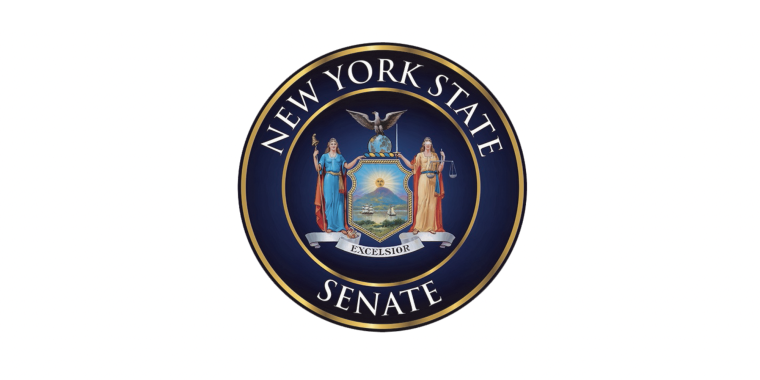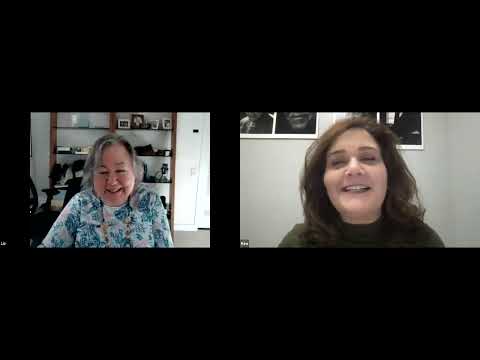
August 2010 Community Bulletin
Liz Krueger
August 10, 2010
-
ISSUE:
- Constituents Corner
WHAT’S INSIDE
MESSAGE FROM LIZ
COMMUNITY SPOTLIGHT
- New Voting Machines for Fall 2010 Election
- Mammogram Van Coming to the Upper East Side
- New Incentives for Business Owners to Hire the Unemployed
- Help Identify Locations for Trees
- Summer Streets 2010
- National Immunization Awareness Month
- Affordable Housing Opportunities in Manhattan
- How To Make Your Home More Efficient: Energy Efficiency Tip Sheet
POLICY SPOTLIGHT
- Hydrofracking
- Banning Bisphenol-A in Baby Bottles
- Reproductive Choice
Message from Liz . . .
During the first week of August, the Senate passed the final piece of the budget, the revenue bill. In the end, the final bill changed little from the one we were considering in June. It provides the necessary revenue to balance the budget with revenue raisers including eliminating the sales tax exemption for clothing under $110, charging hotel tax on internet bookings, allowing for the amortization of pension costs over longer periods, and eliminating a number of business tax exemptions
A major reason this bill did not pass with the rest of the budget back in June, is that a few members were holding out for a bill that included a plan to grant greater independence to SUNY and CUNY, including the ability to set their own tuition rates. With such a slim majority, and the Republicans holding firm on their vows not to provide votes for the revenue bill, these few hold-outs were able to delay the final passage of this year’s budget. However, when it became clear that there were not 32 votes for either of those measures, and they also had significant opposition in the Assembly, the SUNY/CUNY changes were not included in the final deal—it was voted on in a separate bill, but withdrawn when it became clear it did not have enough support to pass.
I had long expected that the budget was not going to get better through delay, which is why I was prepared to vote for the revenue bill as it was written months ago. But in the end we reached a point where we simply had to get it done, which meant that a lot of compromises were made. In many cases, I believe there were better revenue options than the ones included in the final budget. For instance, I continue to believe that raising revenue by allowing wine sales in supermarkets, and by taxing sugary beverages, was preferable to eliminating the sales tax exemption on clothing under $110.
In addition to the basic revenue bill, both houses passed a contingency plan to deal with the possibility that Federal Medicaid funding known as FMAP funding might not come through. The contingency plan would impose significant additional cuts to both healthcare and education if needed to balance the budget, in the event the federal FMAP funding was not granted to New York State. Fortunately, FMAP funding, as well as funding to reduce teacher layoffs, finally seems to be moving at the Federal level, decreasing the likelihood that we’ll need to implement the contingency plan at the State level.
I was pleased that the revenue bill included a change to our redistricting process so that prisoners will be counted in the communities they come from, rather than the prisons in which they are serving in, for purposes of determining legislative district boundaries. This is a long-needed reform, which will ensure that communities most impacted by the criminal justice system do not lose representation when people from those communities are incarcerated. Of course, this is only a piece of the broader redistricting reform we need to establish an independent redistricting process, focused around equal representation rather than incumbency protection.
This budget process has been painful, but I do believe it has prompted some important conversations about how we can create a better process for the future. Many of the budget reform bills that I introduced earlier this year and in years past have been getting much more attention both from my colleagues and from the public as a result of the problems in reaching an agreement, and I hope that in the near future we will be able to advance this or other legislation that will create a more transparent and effective process for the future.
------------------------------------------------------------------------------------------------------
Senator Liz Krueger
Presents:
What is an Educated Citizen?
Community Forum w/ Education Commissioner David Steiner Bringing the State to the District
Tuesday, September 21st 6:00 PM - 8:30 PM
Location: Lighthouse International
111 East 59th Street
(Between Park and Lexington Avenues)
And a panel moderated by Senator Krueger with Commissioner Steiner, Clara Hemphill & Professor Stephan Brumberg
For more information, e-mail liz@lizkrueger.com or call (212) 490-9535.
------------------------------------------------------------------------------------------------------
COMMUNITY SPOTLIGHT
New Voting Machines for Fall 2010 Election
Beginning in Fall 2010, voters in New York City will vote using a paper ballot and optical scanner system. To help voters feel comfortable marking a paper ballot and using the new poll site voting system, the Board of Elections is conducting a comprehensive voter education program throughout New York City’s five boroughs. It includes a multi-language website and advertising campaign, along with voting system demonstrations conducted in communities across the City. Learning Centers are open in each Board Borough Office, allowing voters to have a hands-on experience using a paper ballot and the new voting system.
Find out more about the new way to vote at www.vote.nyc.ny.us or by calling (866) VOTE-NYC (868-3692). If your community organization would like to request a demonstration of the poll site voting system, submit your request to Demo@boe.nyc.ny.us. Instructions on using the new machines are also available online at www.votethenewwayny.com/en/default.aspx.
Mammogram Van Coming to the Upper East Side
On Friday, October 15th, the Scan Van Mobile Mammogram Program will have a van at All Souls Church at 1157 Lexington Avenue (at 80th Street), beginning at noon. This program provides mammograms for women 40 and older who have not had a mammogram in the past year. Medicaid, Medicare and other insurance plans accepted and copayments are waived. The service is free for uninsured women 40 and older. An appointment is necessary. Please call (800) 564-6868 to make an appointment.
New Incentives for Business Owners to Hire the Unemployed
I encourage all businesses in New York to take advantage of the provisions enacted under the Federal HIRE Act, passed in April of this year. Businesses that hire the long-term unemployed (defined as those who have not worked in over 60 days) can suspend payment of the employer's share of Social Security taxes on that worker from March 18-December 31, 2010. The more a business pays a worker (up to the maximum Social Security wage of $106,800), and the longer a business has a worker on its payroll, the greater the tax savings—so there is an incentive to hire people sooner, and pay them more. Finally, to promote long term employment, the Act also includes the following bonus: for any eligible employee kept on payroll for a continuous 52 weeks, the employer receives an additional $1,000 credit on its 2011 tax return. For more information on the HIRE Act and to find out how to apply, go to www.hireact.org.
Help Identify Locations for Trees
Know a great place in the five boroughs to plant a tree? Or 20 or 100? As the New York City Department of Parks & Recreation’s New York Restoration Project (NYRP) works toward their goal of planting one million trees citywide, they are actively seeking out new planting sites. MillionTreesNYC is specifically looking for properties where we can plant 25 or more trees—whether it is a schoolyard or playground, a mixed-use or residential building, a place of worship or an asphalt parking lot. You can also request a street tree from the New York City Department of Parks & Recreation. Go to www.milliontreesnyc.org to let them know about your ideas for tree locations.
Summer Streets 2010
The New York City Department of Transportation is once again sponsoring “Summer Streets.” This summer, for the third year in a row, Park Avenue and connecting streets from the Brooklyn Bridge to Central Park will be temporarily closed to motor vehicles to open them up to pedestrians and bike riders on three consecutive Saturdays in August (August 7, 14, & 21), from 7AM to 1PM. A wide variety of activities, including musical performances, exercise classes, theatre workshops, free bike rental and much more, are part of Summer Streets. For a complete schedule of events, visit www.nyc.gov/html/dot/summerstreets/html/activities/activities.shtml.
August is National Immunization Awareness Month
Held every August, National Immunization Awareness Month is an annual observance to emphasize the importance of immunizations across the life span, from infants to the elderly. Since children are especially vulnerable to infection, most vaccines are given during the first five to six years of life. Other immunizations are recommended during adolescence or adult years, and, for certain vaccines, booster immunizations are recommended throughout life. For more information on National Immunization Month please visit: www.cdc.gov/vaccines/events/niam/default.htm.
Affordable Housing Opportunities in Manhattan
Related Management is now accepting applications for 163 studio, one- and two-bedroom apartments under construction at 440 West 42nd Street in Clinton for low- and moderate-income individuals and families. Rents for these units will be $503 to $1015 depending on income and unit size. To be eligible, applicants must have incomes between $19,029 to $47,520, depending on unit and family size. Applications will be selected by lottery with preference given to New York City residents. Applicants residing in Community Board 4 will receive priority for 50% of the units. In addition, visual/hearing impaired applicants will receive priority for 2% of the units, applicants with mobility impairment will receive priority for 5% of the units, and applicants who are New York City municipal employees will receive preference for 5% of the units. Applications may be requested by visiting www.related.com/affordable or via e-mail to w42requests@related.com or by mail from: W42 Requests, 101 West 23rd Street, Suite 105, New York, NY 10011. Completed applications must be returned by regular mail only (no priority, certified, registered, express or overnight mail will be accepted) to a post office box number, or its equivalent, which will be listed with the application, and must be postmarked by September 13th, 2010.
How to Make Your Home More Efficient- Energy Efficiency Tip Sheet
This summer New York has experienced record-breaking heat, which has led New Yorkers to take refuge inside, where there are cooler temperatures. But lower temperatures inside often lead to higher energy costs. To help you save both energy and money, please check out my tip sheet on How to Make Your Home More Efficient on my Senate website at: www.nysenate.gov/report/how-make-your-home-more-energy-efficient.
POLICY SPOTLIGHT
Hydrofracking
Earlier this month, the Senate passed a moratorium on gas drilling in the Marcellus Shale, a practice that could lead to the disastrous contamination of the State’s water supply. Through the moratorium, gas and oil companies would be restricted from hastily drilling in the watershed, a process typically done through a process known as hydro-fracking. By enacting this moratorium, the New York State Legislature will protect the health and economic well-being of more than 12 million local residents who draw their water from the affected area.
The moratorium, S8129B (Thompson), will be effective through May 15, 2011, and will allow for a full review of the effects of hydrofracking. Hydrofracking is a process of gas drilling by which millions of water mixed with chemicals are blasted into the earth to break up shale rock, releasing the natural gas, which is embedded inside the rock. However, the exact make-up of the chemical “cocktail” used in the fracking process is not known because drilling companies closely guard these ingredients, claiming that information about specific mixtures needs to be kept secret from competitors. Therefore there is no way of monitoring or tracking which chemicals are seeping into the Earth, and into New York’s water supply, because the exact chemicals are unknown.
The side effects of this process are extraordinarily costly and personally devastating, as families across Pennsylvania and other States have learned, after rushing into drilling. On top of the economic and health concerns, there are considerable safety hazards within the untested drilling process; earlier this month, a well in Pennsylvania exploded, taking two lives. In May, an explosion at another well took another life.
In Pennyslvania, Alabama, and Wyoming, there have been numerous reports of groundwater contamination,. In Ohio, tap water caught fire after an accident at a hydrofracking well. I feel strongly that until we are sure we will not face similar risks in New York, this practice is too dangerous to the public health to move forward with, possibly destroying the economic viability of New York State. Without clean water, our agriculture, small businesses and tourism economies would suffer tremendous losses.
We need to learn from the areas around us like Pennsylvania, who have paid dearly for rushing into drilling without fully analyzing the consequences. We need to take time to do our homework to make sure we are not doing anything to do harm to the people of New York or to the future of the environmental stewardship of our State.
Banning Bisphenol-A in Baby Bottles
Last month Governor Paterson signed into law the Bisphenol A-Free Children and Babies Act to end the sale of Bisphenol A-based baby bottles, sippy cups, pacifiers and straws, as of December 1st of this year. Both houses of the New York State Legislature unanimously passed this at the end of June.
New York is now the seventh state—and by far the largest in both population and economy—to pass a phase-out of BPA in young children's products, joining Connecticut, Maryland, Minnesota, Vermont, Washington and Wisconsin.
The law, sponsored by Senator Antoine Thompson in the Senate, prohibits the use of BPA in products intended for children three years of age or under. Child products targeted include pacifiers, unfilled beverage containers, baby bottles, baby bottle liners and cups, cup lids, straws, and sippy cups. Provisions in the law lay out civil penalties for violations that occur.
BPA is an estrogen-mimicking endocrine disrupter chemical used in the production of epoxy resins and polycarbonate plastics, and is the main ingredient in hard polycarbonate plastics. BPA has been linked to breast and prostate cancer, early-onset puberty, and polycystic ovary syndrome.
The presence of BPA in child products has been proven to be disruptive in child development, and can be extremely harmful to children’s health down the road. This bill will significantly reduce the risk posed to children by these chemicals by protecting them from exposure in their early years.
Reproductive Choice
Last month I wrote to President Obama urging him to reconsider a recent decision to ban coverage of abortion except in cases of rape, incest, or to save the life of the mother by the high-risk pools created under the Federal Patient Protection and Affordable Health Care Act.
I strongly oppose this decision because it limits the rights of women to access a safe and legal health care procedure. I am additionally offended that this vulnerable population will bear unconscionable health and financial burdens. There is no question that the health problems of women already suffering from major physical ailments could be exacerbated by having to carry a pregnancy to term and that there would certainly be an added burden to their families and caregivers if the unwanted and unsafe pregnancy continues.
There is no provision in the PPAHC Affordable Care Act that mandates this punitive measure. The Stupak amendment was defeated in Congress and the Nelson amendment is limited to State-based health insurance exchanges. The high–risk pools are not, and should not be, included.
The women who would benefit from the high-risk pools are sick, in desperate need of insurance relief for their staggering medical expenses and least able to pay for an abortion from individual funds. It is also important to note that women in this high-risk category would, because of their medical conditions, require abortion services that would be more costly than the lower charges usually incurred by healthy women.
I feel it is my responsibility to question this decision, which puts vulnerable women at increased risk of medical problems and does not consider abortion care for health emergencies.
Share this Article or Press Release
Newsroom
Go to Newsroom


